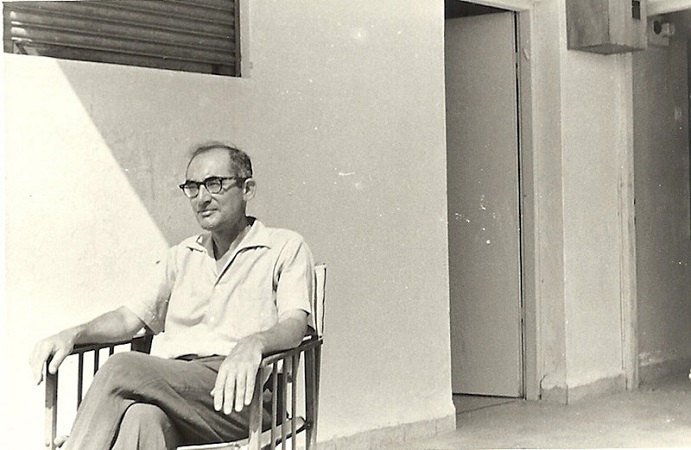The Electronic Intifada / September 4, 2019
Joseph Abileah is considered as the first person in Israel to go on trial for refusing to join its military.
Appearing in a Haifa court a few months after Israel was founded in 1948, the violinist made clear that he would play no part in the war Israel was then fighting against its neighbors. He regarded Arabs as his brothers, not his enemies.
As his case was heard, the Austrian-born Abileah made no apologies for his stance. This included his objection to the establishment of a distinctly Jewish state.
Even before Israel was founded, he had refused to join the Haganah – the main Zionist militia in Palestine.
Abileah escaped a prison sentence, but the judges failed to persuade him to take on a noncombat role, which, in the words of the late Anthony Bing, author of Israeli Pacifist: The Life of Joseph Abileah, “he likened to the case of a thief who watched for the police while another thief performed the actual robbery.”
“I feel very honored to be a descendant of the Abileah family – and I’ve been specifically inspired by Joseph’s work and his courage,” said his grandniece Rae Abileah, a Jewish Voice for Peace activist living in Colorado. Rae is best known for disrupting an address made by Benjamin Netanyahu, the Israeli prime minister, to the US Congress in 2011.
“Alternative world”
Joseph Abileah has been an inspiration to others who have declined to serve in the Israeli army. Unlike him, many of those refusers have been imprisoned.
Maya Wind is among them. She refused to serve in the army in 2008 and spent time in military detention and jail before being released.
She was raised in Jerusalem and became politicized against the backdrop of the second intifada. Toward the end of high school, she began to protest against such practices as Israel’s demolition of Palestinian homes.
“I began discovering this other alternative world that I had no exposure to in mainstream Israeli society,” said Wind.
She grew up in what she described as a “Zionist household,” where it was expected that she would undertake military service, which is mandatory for most Jewish Israeli men and women.
Prior to her involvement in the pro-Palestinian cause, she had assumed the Israeli military was a “defensive force” that was “keeping us safe,” she said.
Indeed, as military refusal does not feature prominently “in the narrative of the state,” she spent much of her school years unaware that the act of refusing even existed, she said. It was only when she studied the issues in greater depth that she learned of the example set by Joseph Abileah.
“Abileah was brave to take a stand at a time when the state was just formulating itself and establishing a strong consensus – and to break from that so early on was admirable,” Wind said.
“I see you”
Sahar Vardi also refused to undertake military service in 2008, when she was 18.
Vardi, who was jailed for her actions, argued that most Israelis justify the state’s unyielding aggression towards the Palestinians on the basis that there is “no choice.”
“So, in that context, we are kind of in survival mode,” said Vardi, who works for the American Friends Service Committee. “And that’s the underlying justification from the [political] right and left.”
Joseph Abileah’s son, Adi, said his father was “kind of accepted for his ideas among his close friends, not so much by others.”
The act of refusing to serve in Israel’s military helps raise awareness about its oppression of Palestinians.
Maya Bernad-Figenbaum, 19, has declined military service in recent weeks. Her decision to do so was prompted by discussions she had with Palestinians.
“I totally identify with the injustice they are going through,” she told the Israeli channel Social TV. “This is my way of telling them: I see you. I understand your pain and will not ignore it.”
Rae Abileah – Joseph’s grandniece – stated that Israel’s current refusers “are not breaking ground but continuing a legacy.”
“There’s always been a Jewish resistance to Zionist ideology and colonial repression,” she said. “We don’t have to accept things. We can say no. The more we know people who refuse the status quo the more courage we get.”
Alasdair Soussi is a freelance journalist based in Glasgow, Scotland, who has worked across Africa, Europe and the Middle East.













